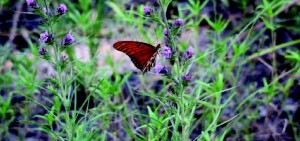
Project works to help restore native plants in East Texas

Publisher
The Daily Sentinel
In East Texas, we do not have to look far to see the evidence of growth and change affecting natural habitats. Panola and San Augustine counties, for example, now represent
two of the top 10 natural gas producing counties in the state.
two of the top 10 natural gas producing counties in the state.
Highway construction impacts are increasing as the I-69 corridor continues to be built throughout the region, and as the state’s population continues to grow, East Texas is seeing rapid increases in people and land fragmentation. All of these are indications of progress, growth, and success in the region, but, natural habitat loss and declining native plant and wildlife populations tend to follow. In fact, it is suggested that over the next 40 years, Texas will lose over 800,000 acres of valuable rangelands, forests, and wildlife habitat due to land development and fragmentation.
While it is critically important to protect what native habitat remains, it is also imperative that we work to restore native plants that are lost in land development, energy production, or transportation system development when the opportunities arise.
Oil and gas pipelines, transmission line rights-of-ways, and highway roadsides are all opportunities for large scale, ecosystem level restoration. Inherent in each of these scenarios are opportunities to revegetate disturbed sites with native grasses and wildflowers rather than with the non-native, invasive species that have so historically been the easy “go-to” for reseeding.
By planting native species on new pipelines or transportation rights-of-ways, there is real potential to create hundreds, if not thousands of miles of prairie corridors to connect remaining habitats and have positive impacts on wildlife conservation in east Texas. However, the largest challenge preventing these efforts is the lack of quality and quantity of locally-adapted, or “ecotypic” native seed available to use.
To read the full article - click on link provided.